The footage of Croatia's World Cup miracle is still playing on a continuous loop near the statue of freedom fighter Stjepan Radic in the centre of Zagreb.
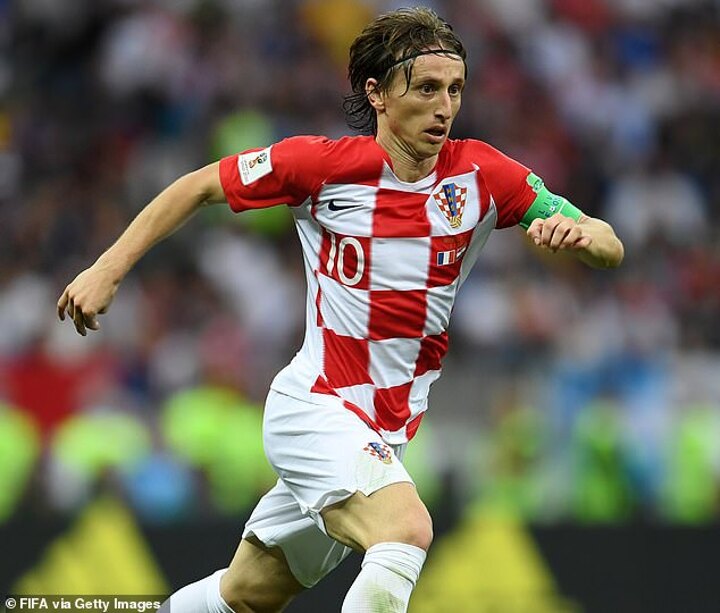
The quarter-final penalty shoot-out against Denmark features more than the semi-final that broke English hearts in Moscow.
They are still telling the stories of the crazy summer when the heads of children too young to know the significance were shaved in a way that imitated the Croatian check shirts.
The diminutive country of just 4.2million population demonstrated on Thursday night that the journey to July's final was no fluke, by beating Spain 3-2 with a performance of such verve that the visitors were made to look mechanical. The deficit could have been far greater.
Yet the resources and football infrastructure are even more modest than the pool of players to draw upon. How can Croatia be so good, how can they have Luka Modric man currently reigning as world player of the year?
On a material level, reaching that final against France has changed nothing. A few extra sponsors have been attracted but the pleas manager Zlatko Dalic issued before the semi-final for a stadium fit to host a side like Spain has fallen on deaf ears.
Zagreb's mayor made pronouncements about building what is to be called the new 'Blue Volcano' stadium in the west of capital.
Designs are about to be asked for, there's vague talk about FA president Davor Suker pursuing Chinese investment, but the ground is no closer to materialising.
Spain were hosted in the concrete hulk of Dinamo Zagreb's Maksimir stadium, where the stands are exposed to the elements.
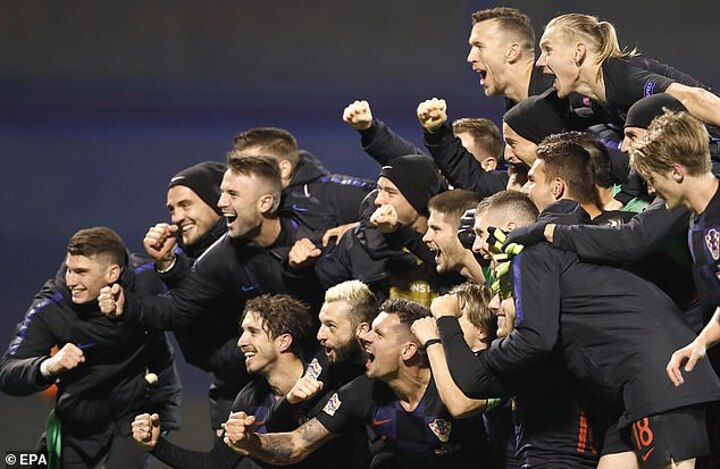
'A new stadium is something that we demand now and we want from our federation and our country, to help us to build a new stadium,' central defender Dejan Lovren tells Sportsmail.
'I don't know why it hasn't happened. I think it's more a political thing and of course financial. Imagine it was raining when we played Spain on Thursday and we didn't have a roof. We deserve more than this.'
It certainly puts England's angst about who owns Wembley into perspective, and though the English game's governing body have had their share of controversy, the news in Croatia last week was dominated by the whereabouts of the shamed FA and Dinamo Zagreb executive Zdravko Mamic.
Mamic has been in exile in Bosnia since he was convicted in his absence in June of corruption on a colossal scale — creaming off money from the club and many of its players and spiriting the proceeds into off-shore tax havens.
Amid suggestions that Bosnia may extradite him back to Croatia to face the six-year prison term handed down, he is thought to have fled instead to the more accommodating United Arab Emirates.
Mamic may have answers to where an estimated £130million of state money, which was supposed to have been spent on renovations on the Maksimir, has also vanished. Nobody knows because the cash does not seem to have made much difference.
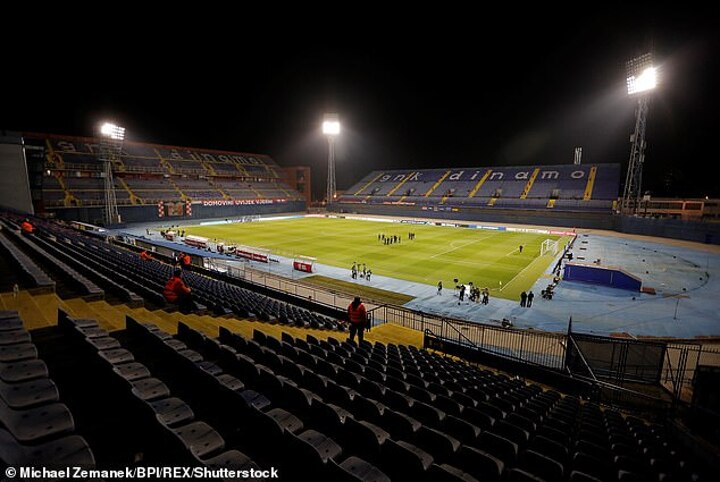
They chuckled in the Zagreb bars last week when told that the proceeds from the sale of Wembley were, in part, designed to improve pitches for children.
The top-flight pitches have needed fixing here. Croatian club sides have just received a £4m handout from their FA for surfaces straight out of the 1970s English First Division.
It says everything for the comparatively modest aspirations of club football that leaders Dinamo Zagreb are being celebrated for reaching the knockout stage of the Europa League.
It is the first time in 49 years that a team from Croatian territory has progressed beyond Christmas in a European competition. They have even coined an expression for the achievement: 'Reaching the spring in Europe'.
The domestic aspirations may be modest but what other nations seem to overlook is the innate Croatian ability when it comes to sport — handball, water polo, basketball and football in particular.
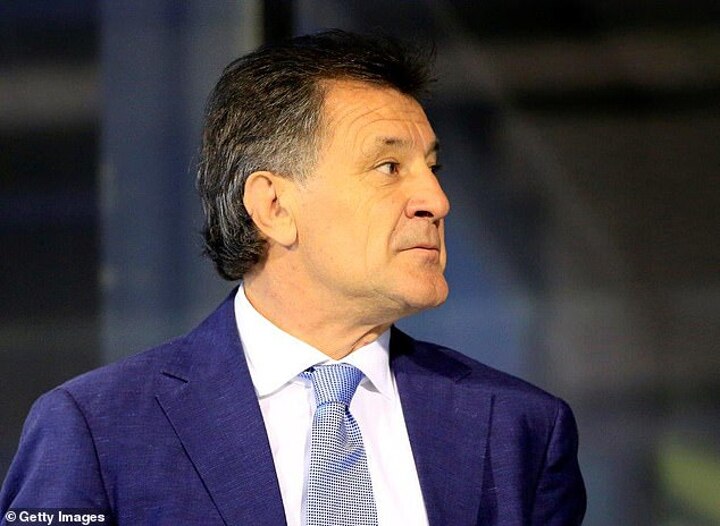
The country is constantly in the top 10 nations for money raised by its players in the transfer market. Much like Brazil, it has a huge footballing diaspora: 350 Croatians are currently playing in leagues beyond their country's borders.
By the law of unintended consequences, the dominance of Dinamo under Mamic's malign influence has, in some ways, helped.
The club, who have won the domestic league for 12 of the last 13 years, have invested £10m — a lot by Croatian standards — in an academy and a proven scouting system which stretches deep into the country's rural hinterland. Very few talents are overlooked.
Luka Modric, who glittered against Spain, was rejected as too small by Hadjuk Split before Dinamo — their oldest foes — hoovered him up. No fewer than 14 players in the World Cup final squad were past or present Dinamo players.
The bad news for England or any other side looking to put Croatia in their place is that there are signs of other club sides emerging, to make the top flight more competitive.
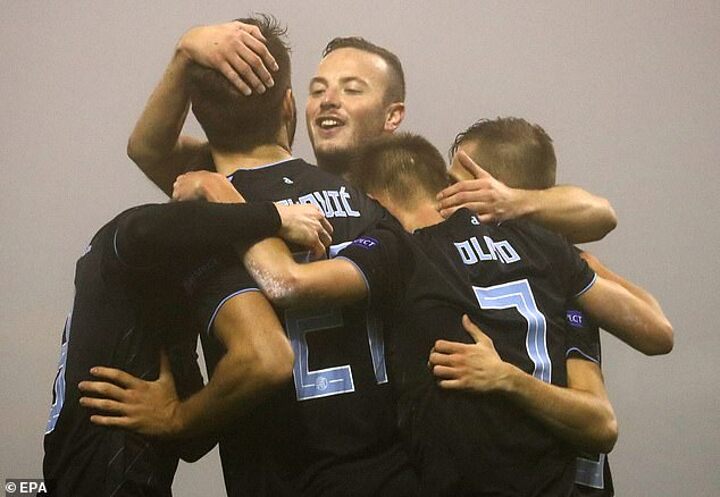
Half an hour's drive out of central Zagreb, Gorica's stadium would not look out of place in League Two. A modest TV deal brings in a little less than £90,000 a year.
Sponsorship earns them £70,000 annually — the weekly salary of some Championship footballers. The club's entire annual playing budget is £1.3m and the best-paid player earns a mere £4,430 a month net.
They have just installed floodlights for the first time and are hoping for a new scoreboard and proper turnstiles soon.
But the team, owned by supporters and promoted from the second tier for the first time last season, are fourth in the table, making them the story of the Croatian season so far.
The sporting director Mindaugas Nikolicius, who was formerly in the same role at Hearts, has recruited from further afield than other Croatian clubs, with six African players earning the club a 'team of nations' nickname.
'The World Cup has helped,' Nikolicius tells Sportsmail. 'We don't need to "sell" our club to players. We are from the country who are second in the world. They want to come here. They also know the Croatian clubs attract scouts so if they succeed they could be on the way somewhere richer.'
Other clubs have turned to overseas investment, Premier League-style. Third-placed Osijek are now owned by Hungarian oligarchs. A Spanish consortium has taken over NK Istra 1961, who are near the bottom of the table.
These are small steps towards a more competitive domestic scene. It says everything about the Croatian clubs' impact that the 50th anniversary of Dinamo Zagreb beating Leeds United to win the 1967 Inter Cities Fairs Cup was a source of celebration last year.
The number '1967' is inked on to the Dinamo team bus. Little did Elland Road know that the Don Revie's players' failure to overcome a 2-0 first-leg lead would be a matter of Croatian history so many years on.
Some here worry about the effect on the national team of broader economic struggles, which have seen an exodus of Croatians to make a living in Ireland and Germany, fellow EU nations who were particularly willing to receive them.
But there is no sign of the production line winding up any time soon. The current crop of players born in 1998 are much talked about. Some say 24-year-old Mateo Kovacic, on loan at Chelsea from Real Madrid, is even more of a talent than Modric. Even Modric seems to agree.
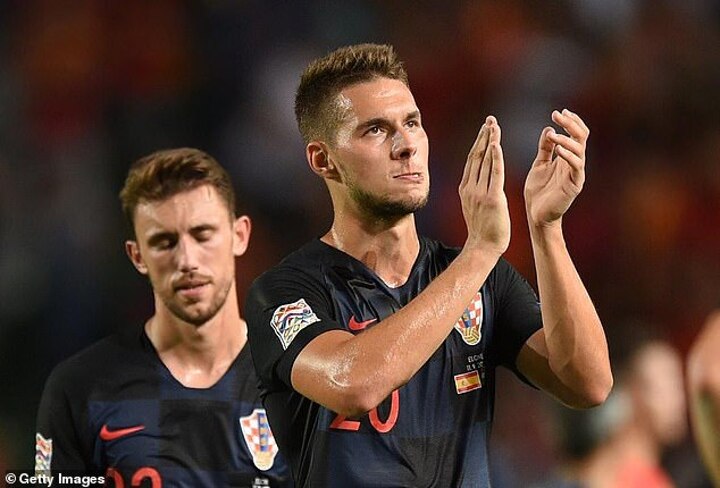
The Croatia FA are encouraging clubs to hold on to their best talents for long enough for them to develop and not vanish in the Premier League where they can languish on the sidelines.
The struggles of Nikola Vlasic at Everton and Andrej Kramaric at Leicester City has been to the detriment of the national team because players who do not get club games do not get picked for the nation.
Kramaric is now at Hoffenheim and back in the national ranks. The struggles and impediments to success have drawn together a group of players quite clearly buoyed by what happened in Russia.
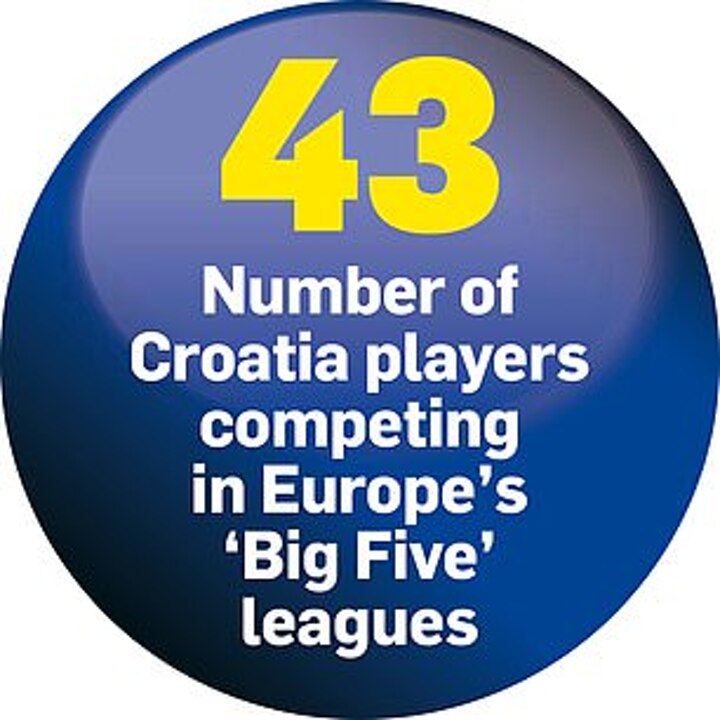
Hammered 6-0 by Spain in Elbe in September, they hit back with a performance of breathtaking flair against the Spanish on Thursday, to give themselves the chance of winning their Nations League group and eliminating England this afternoon.
'Despite everything, we have showed we have something deep inside. Every one of us,' says Liverpool's Lovren, placing his hand on his heart.
'This is what makes us a little bit more special than other teams.'
